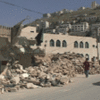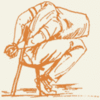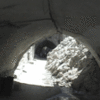
Boycotting the Beeb
1 July 2003
Israel joined Zimbabwe last weekend as one of two countries boycotting the BBC. The move was taken in protest of the “biased and hostile coverage policy,” as Danny Seaman, the head of the Government Press Office in Jerusalem put it. Although Israel has not gone so far as to expel journalists, as did Zimbabwe, “A decision to expel all BBC correspondents has not been ruled out,” Seaman says. At this stage, Israel is making do with measures designed to make life more difficult for the BBC. Sharon Sadeh reports in Ha’aretz. Read more about Boycotting the Beeb



